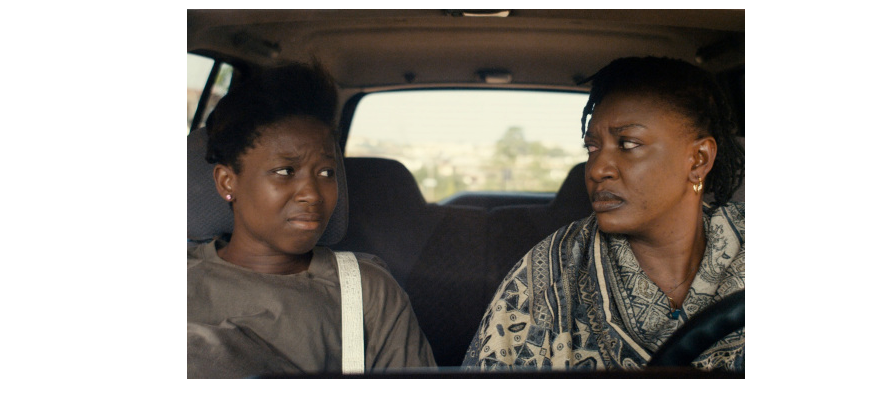An Igbo Mother on Screen in London - A Review of 'B for Boy' by Ndidi Esiri
Last year when I went to the Dubai International Film Festival (DIFF), I was blown away. So when my brother Arie finally finished producing B for Boy, his first feature film, and began talking about the various festivals it would play at, I wondered where I would be jetting off to this time. Toronto? Cannes? Dubai again? I was more than a little disappointed to discover I would be going only as far as Leicester Square – a 12-minute train ride from my flat – because B for Boy was going to be showing at the London Film Festival. After the glamour of Dubai, I was doubtful that London could live up to the same standards. After all, the weather forecast usually predicted rain and compared to the 30-something degrees Celsius of Dubai, temperatures of 16 and below did little to raise my expectations.
My feelings began to change, however, the closer the festival came. It felt as though B for Boy was everywhere. As it was going to have two screenings, I was determined to make sure that as many people as possible knew about the film. Aunties took to Twitter, friends to Facebook and I to Instagram, and before long messages came in from people all over asking how they could get tickets to the movie and what they should wear. Film4 had listed B for Boy as one of 27 must-see films of the festival, and while my brother stood in the immigration queue at the airport, the woman holding his “fate” in the form of an entry stamp, upon learning that he was the producer of the film, exclaimed “I saw it [B for Boy] in the papers! I told my friend we had to see it.” It seemed London did have what it took to be as exciting as Dubai. Unlike at DIFF, at which I saw my brother’s movie on the last day of the trip, the London Film Festival kicked off with B for Boy. To nobody’s surprise it was raining, but the excitement of seeing months of hard work come to life in a London cinema was enough to make it seem like a beautiful October day! Written and directed by Chika Anadu, and performed in Igbo with English subtitles, B for Boy tells the story of Amaka, a devoted middle-class wife approaching 40 who, after giving birth to a daughter, longs for a boy. She eventually becomes pregnant, but a miscarriage and damage to her womb leave her infertile. Pressure from her mother-in law to produce a son and heir forces her to say nothing about the stillbirth, and she eventually fakes a pregnancy while embarking on a desperate journey to adopt a baby boy of her own. There’s much more to say about the plot, but I don’t want to give it away. Although some scenes ran a little too long, the leads gave stunning performances. It is hard to imagine the story being as gripping as it was had the dialogue been in English; the actors speaking in Igbo allowed for a smooth and authentic performance. At the end of the movie, most of the audience (myself included) was pleasantly surprised by how powerful it had been. Expecting the usual over-dramatic nature of the Nollywood genre, B for Boy was a refreshing change. Some wondered whether the “open-endedness” of its ending would spur a sequel – perhaps a G for Girl as someone suggested – while others hurried to buy tickets to the next screening. Word spread and by the end of the day, the second screening was sold out. The movie had been entered into the First Feature Competition and despite my brother refusing to let me to accompany him as his ‘plus one’ (I suppose he could sense my ulterior motive of wanting to catch glimpses of some of my favorite Hollywood actors), I attended the award night all the same. Although B for Boy did not win the competition, it was the only film in the category to be given a special commendation by the judges, who described it as “a powerful film, told with a visual and emotional elegance.” The movie left you wanting to speak Igbo, to get to know the language. For days later the phrase eba bu bem (meaning “this is my house”), which was said with so much passion by Nonso (Amaka’s husband), was constantly repeated in my house as a reply to pretty much anything. Although the festival started out with a lot of uncertainty for the film (at one point, it was accidently called a South African movie), B for Boy surpassed many people’s expectations. It was truly “a terrific debut,” and seeing my name on the big screen as an executive producer definitely made my day.





